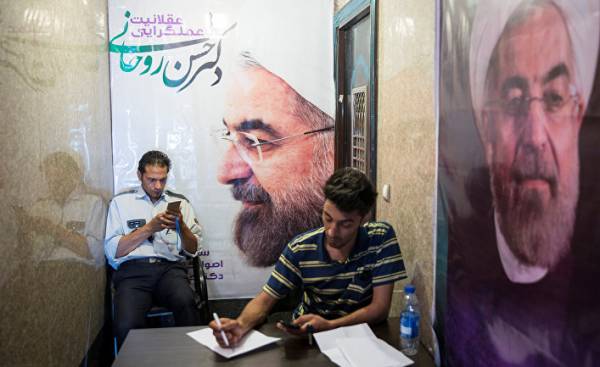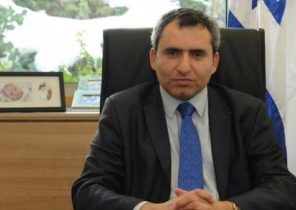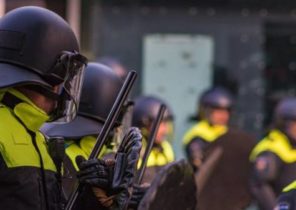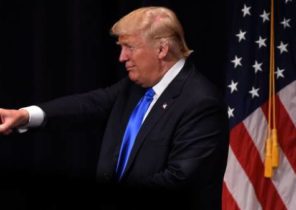
19th may, with 57 percent of the vote, a landslide victory in the presidential elections in Iran won by incumbent President Hassan Rouhani. Him absolute support was provided by the spiritual leader of Iran Ayatollah Seyyed Hadi Khamenei and the armed forces of the country. We can say that the people of Iran, in the face of Rouhani, voted for the reforms in the country and a more open foreign policy.
Rouhani’s victory guarantees the predictability of Iran for the next four years, both at regional and global levels, which is important primarily for Armenia. Perhaps that is why almost immediately after the publication of election results the President of Armenia was quick to congratulate Rouhani on the victory. In his message to Rouhani, the President Serzh Sargsyan expressed confidence in connection with the “development of the traditionally warm and friendly Armenian-Iranian relations and to strengthen them in all fields” and made a remarkable accent that Iran will continue to have a significant contribution in maintaining peace and stability in the region. Thus, official Yerevan clearly States that he sees Iran as a regional and global security threats, but rather as a source of security.
The re-election of Rouhani means that will remain relevant political, economic, regional communications and energy projects and plans that are day by day becoming more specific and ambitious, and are part of the Armenian-Iranian agenda. We are talking about the increase in the share of Iran in the gas and energy system of Armenia, the transit of gas via Armenia to Georgia, and then possibly to Europe, the negotiations on the formation of new energy and energy-chain-Turkmenistan-Iran-Armenia, on the formation of a communication corridor linking the Persian Gulf and the Black sea through the territory of Armenia. It is also about the construction, linking Iran with Georgia highway North-South through this corridor, the preservation on the agenda of the question of construction of the railway Iran-Armenia, opened thanks to a visa-free regime broad horizon for the development of cultural relations and tourism, as well as the process of integration of the EEU in Iran under the mediation of Armenia. In all these areas, without exaggeration, managed to make progress due to the personal sequence Rouhani than he very clearly has demonstrated the will to promote regional economic, political, communication, the role of Armenia and to consider Armenia as its main strategic partner in the South Caucasus. This was confirmed especially during Rouhani’s official visit to Armenia in December of last year. There is no doubt that if there is no force majeure in the coming years in these areas we can expect serious progress. This is facilitated by the new atmosphere of international security concerning Iran, full of challenges and risks, and chances.
Rowhani assumes the country’s leadership in a rather difficult for Iran, period. The fact that the new U.S. administration took in the sights of Iran, gets too dangerous manifestations. On the day of presidential elections in Iran, the US President made his first official visit to the enemy for Iran, the country Saudi Arabia, to participate in the joint with the Sunni Arab countries forum “the U.S.-Islamic world”, under wordy slogan “Together we are strong”. Trump on this forum called Iran the number one threat of international terrorism, and the Secretary of state Rex Tillerson said that the US together with its regional partners will work together to counter Iranian hegemony. Tillerson made clear that trump’s visit to Riyadh aims to create a new us-Sunni anti-Iranian Alliance and move its pivot to the region from Turkey to Saudi Arabia. During this visit Washington and Riyadh signed an unprecedented number of military and military-technical contracts in the amount of 380 billion dollars. These provocative moves will exacerbate the conflict between Iran and Saudi Arabia, will prolong the Syrian crisis, urging Iran to seek support in its relations with Russia and China, and partly with the EU. The fact that the US no longer considers Turkey as its reliable ally, passing this role to Saudi Arabia, slightly reduces the capacity of the regional tactical confrontation Iran-Turkey, especially given the coincidence of interests of the two countries, the Kurdish issue and the successes they formed together with Russia Troika in the Syrian conflict.
However, instead, Tehran might be forced to reconsider its relations with Azerbaijan, given the already unconcealed anti-Iranian stance of Baku. In addition, the President of Azerbaijan Ilham Aliyev in an interview with the OIC Journal among allies of Azerbaijan, in addition to Pakistan and Turkey, also referred to Saudi Arabia, he, ignoring the nervous reaction of Iran, also participated in the anti-Iranian summit, the US-Muslim countries, held in Riyadh. It is difficult to imagine that Tehran will easily digest these gestures. In the context of polarization around Iran in the future, we may witness some editing of Iranian-Azerbaijani relations. In this case, Tehran will further appreciate the value of friendly relations with Armenia as a stable and reliable partner, a friendly country, especially when the President of Armenia his message makes clear that he considers Iran part of one of Armenia’s security system.
This situation you need to use. Hassan Rouhani, in December of last year in Yerevan, invited the Armenian President to visit Iran. His re-election, new development in the relations between Iran and Azerbaijan, the probable formation of the axis Russia-Iran-China, undisguised by the EU’s desire to strengthen economic ties with Iran create a good precondition, to use this reason as early as possible and move bilateral relations to a new level.







